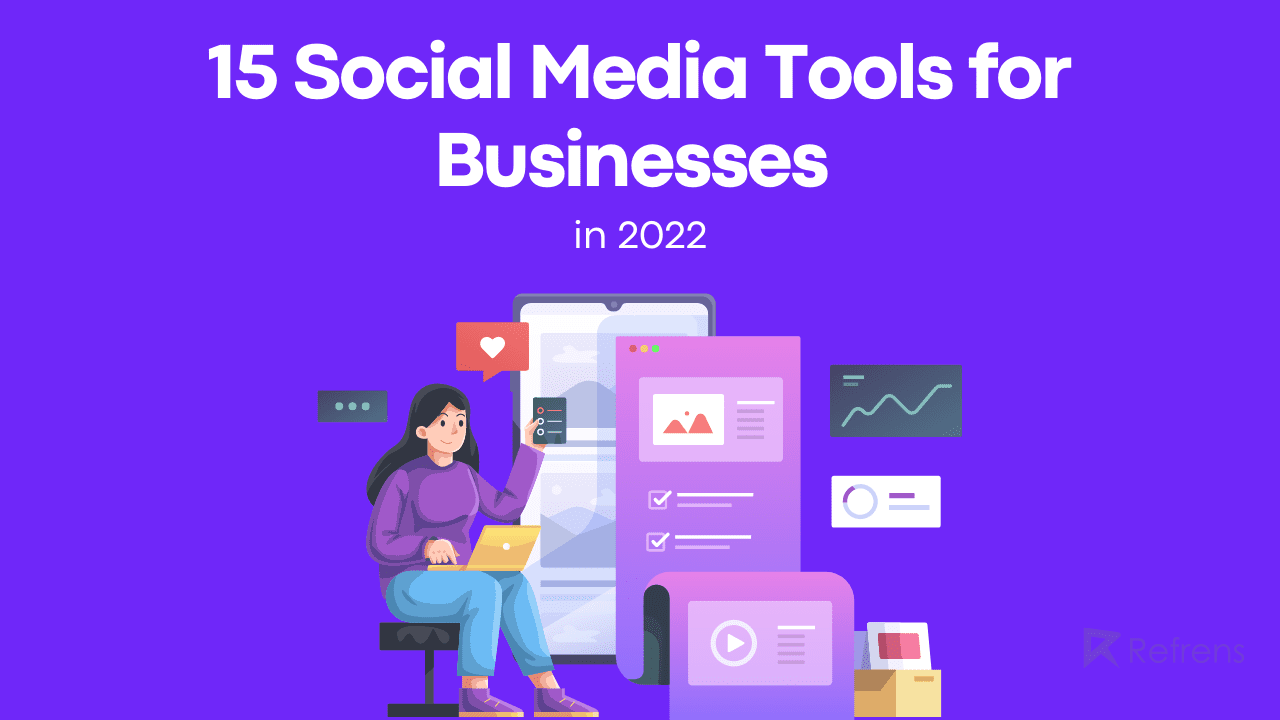Soft skills are becoming extremely important in today’s workforce. While several employers still focus on technical skills that respective jobs require, soft skills are now just as valued. These can be classified as skills that are more personal, whether they are innate or learned through additional classes and courses. These are essential in that they are what will distinguish you as an applicant amongst your competitors vying for the same job. Employers look for applicants with these attributes as they will allow a potential employee to withstand whatever challenges come with the job and more. When managers see their employees’ strengths and weaknesses through their behavior, they’ll see who stands up to complete tasks and who is more capable of getting the job done.
Here we’ve listed the essential soft skills to look out for in the coming year. Don’t worry if you don’t have the skills yet, as you can work towards developing them through your everyday experiences.
Check out the Most In-Demand Freelance Skills!
What Are Soft Skills?
Soft skills, also known as people skills or emotional intelligence, are the capacity to engage with others in a kind manner. They are personal characteristics that have an impact on interpersonal relationships, communication, and interaction.
Soft skills can be extremely beneficial to a company’s success, but why are they so critical?
While soft skills—less quantitative traits like web design, accounting, or editing experience—can be more difficult to cultivate, they are arguably just as crucial in running a successful firm. Understanding what they are can assist you in identifying yours, as well as the ones you will need to develop in the future.
What Are the Benefits of Soft Skills in the Workplace?
Soft skills are an important aspect of increasing one’s capacity to collaborate with people and can help you advance in your profession. Soft skills can help you locate, attract, and retain clients if you’re a small business owner or self-employed.
Presentation skills, networking ability, and etiquette awareness can all help you land new clients and get more work from current ones. Strengthening your ability to handle conflicts, solve problems, and deliver exceptional customer service will help you build better bonds with coworkers, vendors, and other business connections.
Finally, excellent soft skills can help you build confidence, which is a great asset in the workplace.
Every Freelancers Must Have These Soft Skills
Work Ethic
Eric Chester, author of ‘Reviving Work Ethic: A Leader’s Guide to Ending Entitlement and Restoring Pride in the Emerging Workforce’ says that individuals who exhibit a strong work ethic are those who are positive and enthusiastic about their work. Now, work ethic is as much about the small things as it is about big things. One way you can show your potential employer your good work ethic is by respecting deadlines and always being on time. This also shows that you never cram things, always allocating the right amount of time to the tasks assigned to you. This can be valued rather high as it’s a skill that is harder to teach and comes naturally to some individuals.
Excellent Communication
India Today details that being an effective communicator is often more valued than intelligence in the realm of businesses. One way you show that you’re an effective communicator is through not only excellent speaking skills but also through your ability to listen. Since being a good communicator also means being a good listener, those who wish to improve this soft skill should show the ability to comprehend various points of view in order to expand their own views and practise empathy.
Up-to-Date Technological Skills
Given how fast-paced today’s world is, lifelong learning is an essential skill employees must undertake. They must be curious and driven to learn more amidst an ever-changing digital landscape. Considering that technology in the workplace is evolving at a frenetic pace, it’s important to anticipate, learn, and be able to adopt fresh concepts. Being digitally agile through skills like website creation and online marketing will give you a huge advantage in your career. Marketing agency Ayima notes that startups have a hard time establishing their websites, particularly because the process to do so is costly and time intensive. If you take the time to learn the latest concepts on Google rankings and algorithms, you will be a much more valued member of your company. And even if having this knowledge isn’t necessarily part of your typical job description it will surely help a lot when it comes to setting yourself apart in the job market. Understanding that you can never know just enough is also a practice of humility, which is oftentimes long forgotten.
Leadership Qualities
Exhibiting leadership qualities shows that you are a team player. This helps you show your potential for growth and ability to rise above to actual leadership positions early on as you are able to influence and persuade your peers to do be the best version of themselves. This skill is so prized that 95% of organizations plan on maintaining or increasing their investment in leadership development, according to the Chief Learning Officer Business Intelligence Board. Take note that leadership comes in different forms and its best to be able to adapt depending on the situation. Sometimes leadership is about managing people and sometimes it can be about setting a good example.
Deeper Self-Awareness
Those who have deep self-awareness know their strengths. They know how to capitalize on what they are good at, and show that they are also always open to improvement. Our piece on Arnab highlights how leaning into your strengths will always yield benefits no matter how unconventional the path may seem. However, self-awareness goes beyond just knowing your strengths. Another part of self-awareness is knowing where you lack and where you have to improve. Career Services suggests that self-aware individuals constantly ask for feedback when they find themselves wanting to do more or be more. Having a deep sense of self-awareness also means learning how to delegate tasks to people more suited to certain jobs to avoid the temptation to micromanage.
While the job market is looking like it’s at its most competitive in years, we have no doubt that you’ll have more than a fighting chance once you’ve honed these soft skills. Remember that self-improvement is a continuous process and is something that you’ll have to work on every day. No one is born a leader or a great communicator. Just like any other skill these can be practiced and developed with time.
Different Categories Of Soft Skills
Organize your time
Time management entails being able to manage your time well in order to work as efficiently as feasible.
The following are some sub-skills connected to time management:
- Stress reduction
- Organization
- Prioritizing
- Planning
- Setting objectives
Communication
Communication is the ability to effectively transmit or share ideas and thoughts, and it is one of the most important soft skills companies want in all areas.
The following are the most frequent communication skills:
- Verbal and written Communication
- Presentation
- constructive criticism
- Listening attentively
Flexibility
Your adaptability demonstrates how well you can accept and adjust to change.
Companies and work environments change all the time: new team members join, old team members depart, companies are purchased and sold, and so on.
As a result, you must be able to adapt to a variety of scenarios at work.
Adaptability skills include the following:
- Self-management
- Optimism
- Calmness \sAnalysis
- Self-motivation
Problem-solving abilities
No matter what career you have, being able to tackle problems logically and creatively will come in handy.
After all, there isn’t a career on the planet where you won’t encounter difficulties. That is why problem-solvers with a creative bent are always in demand.
These are the abilities that are linked to problem-solving:
- Analysis
- Reasoning logically
- Brainstorming Observation Decision-making
Collaboration
Teamwork will always be a desirable soft talent. It enables you to collaborate efficiently in a group and complete projects. The following are some examples of teamwork skills:
- Conflict resolution and management
- Collaboration \sCoordination
- Exchange of ideas
- Mediation
Creativity
We often associate creativity with disciplines such as art or design, but creativity is a broad phrase that encompasses a variety of sub-skills ranging from questioning to experimenting. As a result, any professional can benefit from creative abilities just as much as artists.
The following are some instances of creative abilities:
- Imagination
- Mind-mapping
- Innovation
- Experimentation
- Questioning
Leadership
The ability to mentor, train, or guide is referred to as leadership. Employers like to hire people that demonstrate leadership potential in any business for two reasons:
Employees with leadership qualities are more likely to take initiative and contribute in helping the firm flourish.
Employees with great leadership skills may be promoted to higher management positions in the future.
Leadership abilities include the following:
- Abilities in management
- Authenticity
- Mentorship
- Generosity
- Cultural awareness
Interpersonal Communication Skills
Interpersonal skills refer to how well you connect with others, maintain relationships, and leave a positive impression on others.
- Empathy
- Humor
- Networking
- Tolerance
- Diplomacy
Ethics of Work
Labor ethic is defined as the value placed on work and the willingness to put up the effort necessary to achieve results. It’s a soft skill that employers will value in virtually every job you apply for.
The following are some soft skills related to work ethic:
- Responsibility
- Discipline
- Dependability
- Commitment
- Professionalism
Paying Close Attention
Another trait that no employer will overlook is your capacity to be thorough and precise in your work. Dedicated employees distinguish themselves from those who just want to get the job done and go home by paying attention to even tiny issues.
Other soft talents that are connected to attention to detail include:
- Scheduling
- Introspection
- Acuity
- Questioning
- Observational analysis
How Can You Improve Your Soft Skills?
Soft skills can be cultivated and enhanced over time, even if they are not as easily learned as technical abilities or passing an exam.
Improving your soft skills can be challenging because it necessitates a great deal of reflection, which can be unpleasant or uncomfortable if you’ve never done it before.
Here are some pointers to help you enhance your soft skills or build those you need to work in a specific role:
- Self-reflection is a good thing to do. To improve, you must first be honest with yourself about your flaws. This isn’t always straightforward. If you’re having trouble, get the support of a friend or family member to help you figure out your genuine skills and shortcomings.
- Look for online training opportunities. Once you’ve determined the areas you need to work on, look for online courses that will assist you in learning them.
- Pay attention to what others are doing. Look for people who have the soft skills you want to develop. Inquire about their counsel or coaching if you have a relationship with them.
- Practice. With practise, all soft talents will develop. Before your interview, practise applying your newfound skills with friends or family who have received training or coaching.
Article written by Lisa Davids (Exclusively for refrens.com)
Lisa Davids is a London-based business consultant specializing in helping organizations in the recruitment and training processes. These days, she runs an eCommerce business and writes as a freelancer on the side.


















